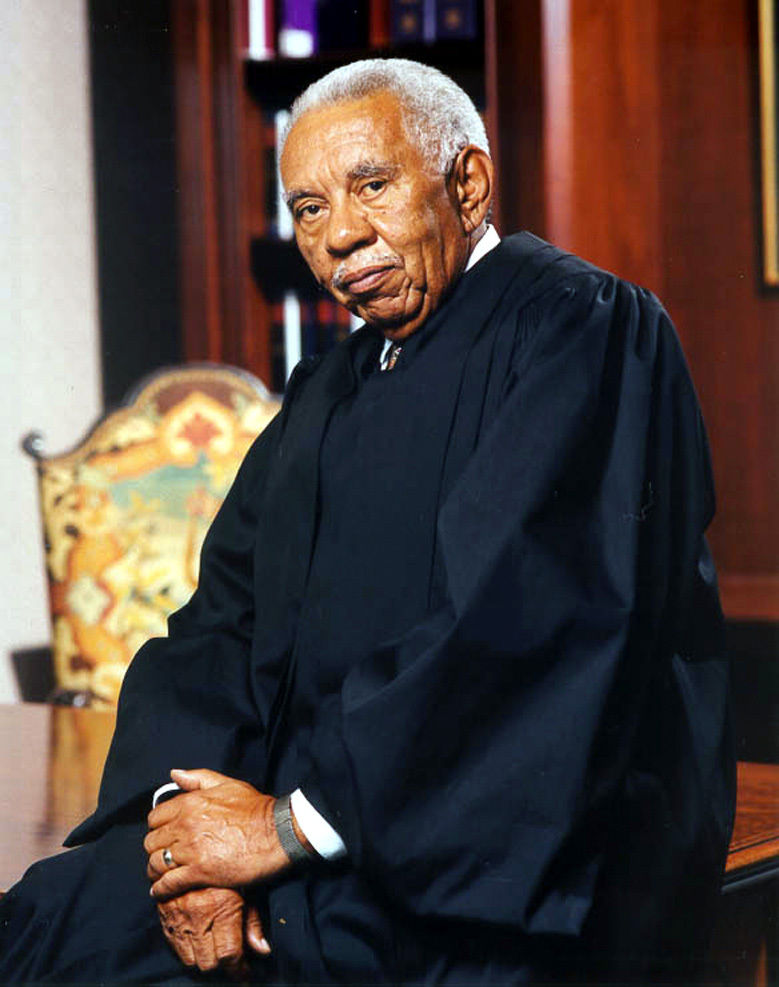Ernest Adolphus Finney, Jr. was the first African American elected to the South Carolina General Assembly, the first African American Circuit Court Judge in South Carolina, and the first chief justice of the South Carolina Supreme Court. Finney was born in Smithfield, Virginia in 1931, the son of Ernest A., Sr. and Colleen (Godwin) Finney. Finney’s mother died ten days after giving birth to him. Finney’s father, an educator, moved to the Washington D.C. area after her death. The Finneys later moved to South Carolina where Finney, Sr. became the dean at Claflin College in Orangeburg.
In 1952, Ernest Finney received a Bachelor of Arts degree from Claflin College. In 1954, Finney graduated from South Carolina State University School of Law with a Juris Doctor degree. After graduating from law school, Finney had a difficult time finding work in the legal field. Because of segregation, he was forced to teach in the public schools in Horry County, South Carolina and to wait tables at the Ocean Forest Hotel.
In 1955, Finney married Frances Davenport, who also attended Claflin College. To this union three children were born: Ernest A., III, Lynn Carol Nikky, and Jerry Leo. In 1961, the Finney family moved to Sumter, South Carolina. There, Finney opened the Ernest A. Finney, Jr. Law Office and served in private practice. Later, Finney and Reuben L. Gray formed the Finney and Gray Law Office. Finney worked along with Matthew J. Perry, defending the Freedom Riders and civil rights demonstrators. One of Finney’s most notable defenses was on behalf of the nine students who staged one of the first sit-ins in Rock Hill, South Carolina in 1961. Finney lost almost every case that went to trial, however, he won all except two in the appellate courts.
In 1963, Finney was appointed chairman of the South Carolina Advisory Commission on Civil Rights. Nine years later, in 1972, Finney was elected to South Carolina House of Representatives. Finney was one of the first African Americans elected to the General Assembly since the 19th century, serving in the State House for three years, from 1973 until 1976. In 1976, Finney was the first African American to serve as a Circuit Court Judge in South Carolina. In 1985, Finney was elected as an Associate Justice of the South Carolina Supreme Court. In 1994, Finney was elected the first African American Chief Justice of the South Carolina Supreme Court, serving for five years. In 2000, he retired from the bench. Afterwards, in 2002, Finney served as president of South Carolina State University for a brief term.
Finney, a member of Alpha Phi Alpha Fraternity, received many honors and awards for his public service, including several honorary doctorates.
On December 3, 2017, Ernest Adolphus Finney died in Columbia, South Carolina at the age of 86. He was survived by his wife and children.

